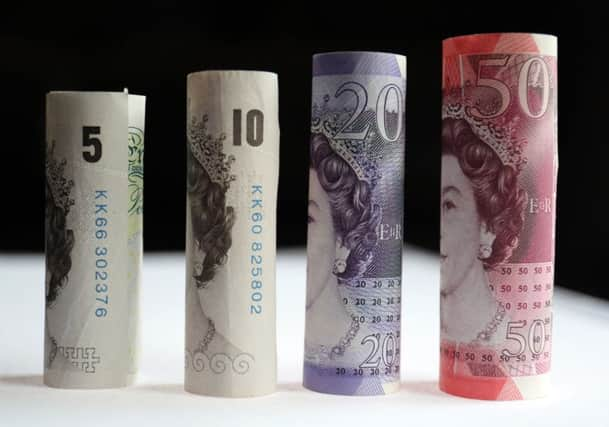Inflation down as air fares fall and clothes shops cut prices


The Office for National Statistics (ONS) said Consumer Price Index (CPI) inflation dropped to 0.3% from 0.5% in March as air fares fell by 14% month-on-month, having surged 23% the previous month due to the timing of Easter.
Clothing prices were cut by 0.4% during the month as womenswear retailers moved on flagging sales when hit by last month’s cold weather.
Advertisement
Hide AdAdvertisement
Hide AdBut the ONS said April also saw prices on the forecourts rise, while food prices fell by less than they did a year earlier.
James Tucker, head of CPI at the ONS, said: “After five months of inflation gently rising, we have again seen a fall in CPI.
“The main reason for the drop was a fall in air fares, which saw a large rise in March due to the timing of the Easter holidays.”
Last month’s fall in inflation is expected to be brief, given the recent bounce back in the price of oil.
Advertisement
Hide AdAdvertisement
Hide AdPetrol prices rose by 3.6p between March and April to 105.9p a litre, while diesel lifted by 3.4p to 106.5p a litre.
Inflation is predicted to rise only gradually over the year, but remain well below the Government’s 2% target, leaving the Bank of England in little hurry to raise interest rates - which have remained at 0.5% since March 2009.
Rate-setters may face the twin threat of surging inflation and falling economic activity.
Sterling has already fallen by around 9% since last November, due largely to uncertainty ahead of the referendum.
Advertisement
Hide AdAdvertisement
Hide AdA Treasury spokesman said: “Today’s inflation figure continues the trend we’ve seen over the past year. Pay is growing faster than prices, boosting families’ spending.”
At Danske Bank, chief economist Angela McGowan said changes were afoot.
“The current levels of relatively low inflation still reflect past falls in energy, but oil prices are now slowly climbing again so this current downward pressure on annual inflation could be out of the year on year comparison by late summer.
“If the UK votes to remain in the EU and we see UK growth bounce back in the second half of this year, this combination of rising commodities alongside improved consumer confidence in the UK may mean that the BoE will hit its inflation target sooner than it thinks.”